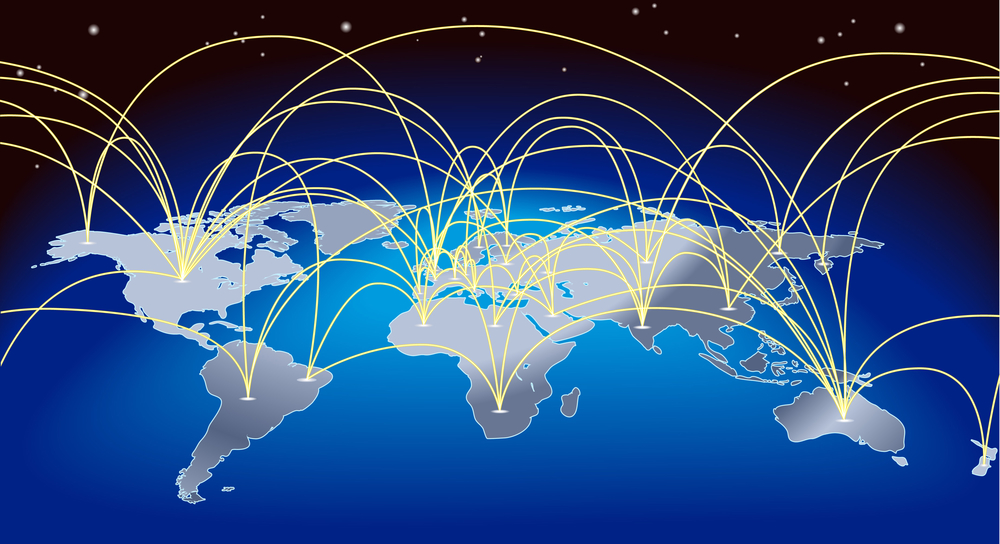The Indian Legal Sector's Globalization

The Indian legal sector is in a unique position as it prepares for a new era of international integration. Few industries have been as shielded from global norms since India's adoption of globalization in 1991 as the legal field. But as India grows in importance as a player in the world economy, it becomes more and more clear that the legal sector needs to conform to international norms. Acknowledging this necessity, the Bar Council of India has started along the path of liberalization with the goal of making it easier for international attorneys and law firms to enter the Indian legal market. This action represents a dramatic break from the past and a change toward a legal system that is more globally integrated.
Comprehending the Legal Sector's Globalization
Globalization, which is defined as the unrestricted exchange of ideas, goods, and services beyond national boundaries, has changed industries all over the world. Within the legal sector, globalization aims to promote an international framework that allows lawyers to function without interruption across jurisdictional boundaries. Although India has always taken pride in its strong legal system, which is based on its socioeconomic principles, the realities of international trade demand a more cosmopolitan approach. Recognizing this shift in global paradigm, the Bar Council of India decided to introduce the "Rules for Registration and Regulation of Foreign Lawyers and Foreign Law Firms in India, 2022".
A Greater Involvement in International Law
The regulations set forth by the Bar Council of India, as previously indicated, show a sophisticated strategy for bringing international attorneys into the Indian legal market. The general idea behind the rules, notwithstanding their complexity, is to allow foreign attorneys and law firms to practice corporate and transactional law within certain bounds. With certain limitations, this covers services including advising on joint ventures, mergers and acquisitions, and intellectual property issues. Importantly, foreign attorneys are allowed to represent clients in international arbitration proceedings held in India, but they are not allowed to appear before Indian courts or statutory authorities.
Managing the Long-Term Risks and Benefits
While some Indian law firms may have short-term financial difficulties as a result of the BCI Rules, there should be significant long-term benefits. Through reciprocity and cross-border knowledge sharing, the regulations have the potential to improve the standard of legal services provided in India. Additionally, the arrival of international companies is probably going to increase competition, which will benefit Indian lawyers by improving opportunities, pay, and work culture. Notwithstanding the optimistic outlook, it is imperative to recognize the possible hazards linked to liberalization.
Maintaining a Caution-Optimism Balance
Like every liberalization initiative, there are advantages and disadvantages to foreign attorneys entering the Indian legal system. While more competition might spur efficiency and innovation, it also gives rise to worries about unfair regulations and distorted markets. One significant difficulty is the distinctions in regulatory frameworks between foreign and Indian authorities, which may cause misunderstandings and moral conundrums. Furthermore, local companies may lose out due to the competitive landscape being skewed by the financial might of global legal firms. As a result, the Bar Council of India needs to exercise caution and make sure that liberalization has more advantages than disadvantages.
Participation and Conversation
Most importantly, the Bar Council of India's liberalization strategy demonstrates a dedication to communication and cooperation. Through proactive stakeholder engagement and feedback gathering, the regulator exhibits a willingness to confront issues and iteratively improve its regulations. In addition to promoting transparency, this consultative approach boosts trust in the regulatory framework. Going forward, keeping up the conversation will be crucial to successfully navigating the intricacies of liberalization.
In summary
In summary, the Bar Council of India's move to liberalize the legal sector is a critical turning point in the country's integration into the world economy. The potential rewards are enormous, even though the path ahead may be difficult. India can boost its standing in the international economy, improve the caliber of its legal services, and encourage innovation by welcoming foreign attorneys and law companies. To achieve these advantages, though, calls for a well-rounded strategy that takes into account legal issues and protects the interests of all parties involved. The Indian legal sector may enter a new phase of development and prosperity through continuous communication and cooperation, ready to satisfy the needs of a globalized society.
Crossing the Boundaries: Moral and Lawful Aspects of Dying-With-Perfection Care

Death is an unavoidable part of life's journey and a place we must all eventually arrive to. However, there are significant cultural and societal differences in how people embrace this inevitability. The disparate narratives of Atal Bihari Vajpayee's protracted need on life support devices and Ronald Reagan's peaceful death in the company of loved ones underscore the disparate environments around end-of-life care. These accounts highlight the moral conundrums and legal difficulties that surround the quest of a dignified departure, especially when compared to the Western advance directive practices and India's fight for compassion and clarity in end-of-life decisions.
Different Storylines: Atal Bihari Vajpayee and Ronald Reagan
Atal Bihari Vajpayee's and Ronald Reagan's biographies provide moving insights on the range of end-of-life experiences. Ronald Reagan's peaceful passing, surrounded by family in spite of his fight with dementia, serves as an example of the value of respect and family presence in the last stages of life. On the other hand, Vajpayee's protracted need on life support equipment highlights the difficulties and moral conundrums present in contemporary critical care environments, especially in the lack of explicit guidelines and caring frameworks.
While advance directives are becoming more widely accepted in Western nations as a means for people to communicate their wishes for their end of life, India is faced with a situation where death is routinely medicalized in critical care units. This discrepancy highlights the moral need to respect people's autonomy and dignity in the face of mortality in addition to reflecting cultural differences.
Legal Difficulties and Ethical Obligations
The cornerstone of medical treatment is the ethical imperative, as stated by the Indian Council of Medical Research, to alleviate suffering and bring consolation to those facing an incurable illness. However, there are still many obstacles in the way of putting these ideas into reality, which are made worse by ambiguous laws and cultural norms. There are many moral ambiguities and ethical conundrums in the environment as a result of the normalization of intensive care deaths and the absence of comprehensive legal frameworks controlling end-of-life care.
A major step toward increasing clarity in end-of-life decision-making has been taken with the 2023 Supreme Court ruling that recognized the legitimacy of advance directives and the removal of life support in unnecessary cases. However, a lack of knowledge and comprehension among the general public and medical experts continues to impede the execution of these provisions. The necessity for complex legal and ethical discourse surrounding end-of-life care is further highlighted by the confusion that exists between "passive euthanasia" and withholding or withdrawing life support.
Moving Towards Palliative Care and Death Literacy
Considering how reluctant society is to talk about death, efforts to spread "death literacy" become essential. The Lancet Commission's invitation to revive discussions about death and dying in the context of families and communities has the potential to enable people to face their inevitable death with dignity and readiness. Societies may enable people to make decisions that are in line with their values and preferences by promoting open communication and offering information on end-of-life care options.
Moreover, a big step toward guaranteeing dignity in old age is the acknowledgement of palliative care as a crucial aspect of the right to health. According to the World Health Organization, being in good bodily, social, and mental health goes beyond simply not having a sickness. Societies may respect each person's intrinsic dignity, regardless of how close they are to passing away, by providing access to full palliative care treatments.
Moreover, a big step toward guaranteeing dignity in old age is the acknowledgement of palliative care as a crucial aspect of the right to health. According to the World Health Organization, being in good bodily, social, and mental health goes beyond simply not having a sickness. Societies may respect each person's intrinsic dignity, regardless of how close they are to passing away, by providing access to full palliative care treatments.
In summary
Death is the ultimate equalizer in the mosaic of human experience; it cuts beyond the lines of power, riches, and prestige. The stories of Atal Bihari Vajpayee and Ronald Reagan provide as moving reminders of the range of experiences people go through in their last hours. Respecting each person's individuality and dignity is crucial even while society struggle with the moral and legal issues related to end-of-life care.
In the future, promoting "death literacy" and accepting palliative care become crucial cornerstones in the quest for a dignified exit. Through transparent communication and the provision of empathetic end-of-life care, communities can guarantee that people are given the chance to consummate their life with dignity and grace. By doing this, we respect the journey from life to death as a crucial aspect of the human experience and uphold the intrinsic value and dignity of every human life.


